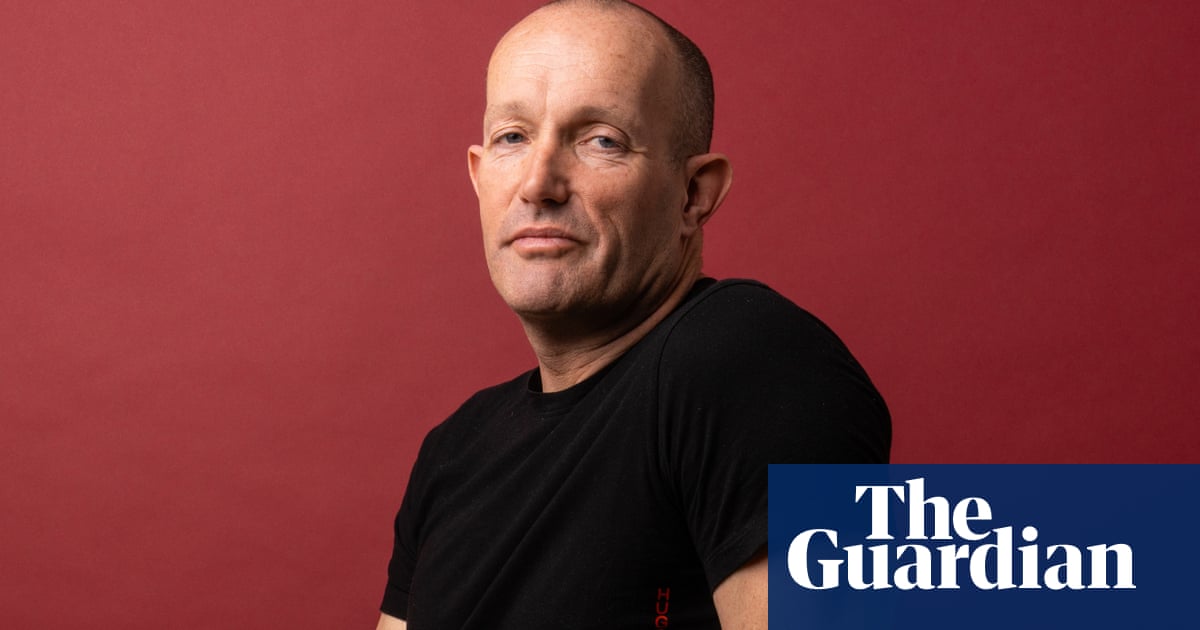
amuel Asilikwa grew up in rural Kenya. There was a strict template for masculinity, informed by centuries of tradition – and intolerance. In a new documentary about his life, we see his father, a pastor, question Asilikwa about why he is yet to find a wife. We then watch as he relocates to Nairobi in search of work and adventure. He finds community, friendship and intense romance with a man called Alex.
Peter Murimi’s film I Am Samuel, shot verité-style over the course of five years, is at its most powerful contrasting city and countryside. Kenya’s farmland, clay roads, shrubbery and corn fields are evidence of a still, yet cyclical, pattern of life compared with the infinite noise and claustrophobia of Nairobi. But it is also a film about a shifting political landscape, where “carnal knowledge against the order of nature” is punishable by 14 years’ imprisonment.
Murimi had wanted to make a film examining the tension between Kenya’s culture and queer love – a tension that often leads to violence – for some time, after hearing the upsetting testimony of a close friend. He found collaborators in We Are Not the Machine, a local production company that tells the stories of outsiders; together, they determined the best route through the minefield. “When we were brainstorming, I thought it would be really cool to have a documentary that basically is very African in its styling, but also tries to show what happens to the dynamic of a family when you have a queer son or daughter,” he says.
Then they scouted for a subject, eventually going with Asilikwa because “the majority of the people who’ve come out from Kenya are middle class and from wealthy families; that buys you security”. Indeed, the most high-profile openly gay Africans have been more insulated by wealth and class, such as Bolu Okupe, the son of a Nigerian former presidential aide, and the late Kenyan author Binyavanga Wainaina.
“But in Kenya the majority of people live below the poverty line,” says Murimi. “So I thought Samuel’s story was actually much closer to the majority of gay people in Kenya.”
Murimi and Asilikwa are speaking to me on a video call from an undisclosed location outside Kenya. Despite the documentary, Asilikwa remains hesitant about revealing much about himself, forever wary of safety concerns. Life as a gay man in Kenya was “tough”, he says. Considerable changes to his personal presentation were required between country and city.
Murimi was eager to produce a piece of work that would buck the trend of what he sees as the media’s culpability in furthering prejudice. “I’m sort of embarrassed of being part of the media fraternity,” he says. Confusion over how to cover LGBTQ+ issues can result in a tabloid treatment. “When you see a news article, it’s normally outing someone, or saying: ‘Look at this person who’s different, who’s weird.’”
This extends even to the relationship between LGBTQ+ organisations and their members, says Asilikwa, who feared they would view him and the film as an inconvenience, rather than offering him protection. When in Nairobi, Asilikwa says he had about 10 friends with whom he could meet and freely socialise, only about half of whom knew his address.
Today, Asilikwa and Alex are living in Europe, in anticipation of a violent backlash to the film – although no release is yet planned in Kenya.
Yet both men say they are cautiously optimistic about the future of LGBTQ+ rights in the country. Murimi points to the work of activists to repeal sodomy laws in sub-Saharan Africa and to a victory in 2019 in Botswana, where the high court ruled that laws criminalising gay sex were unconstitutional.
Should his film be seen in their homeland, Murimi is confident it could “change the narrative and perception” of what it means to be gay. I Am Samuel is keen to emphasise the commonalities between the man at its heart and those worrying around the edges: Asilikwa is as religious and conservative as many of his peers.
As for Asilikwa? He deeply misses his homeland, he says, and his exiled future is uncertain. But the film is “the biggest win”: a testament to truth – and a way of coming out without risking life and limb.












